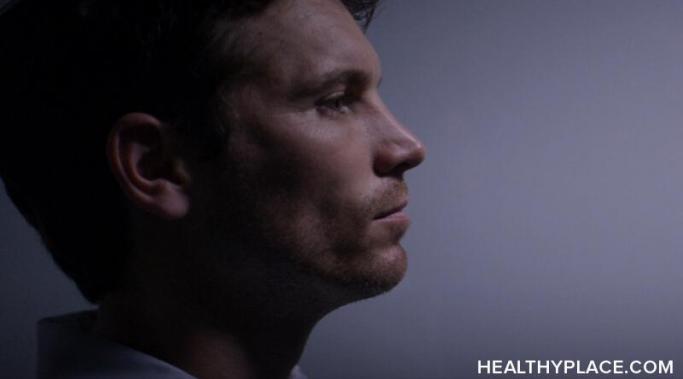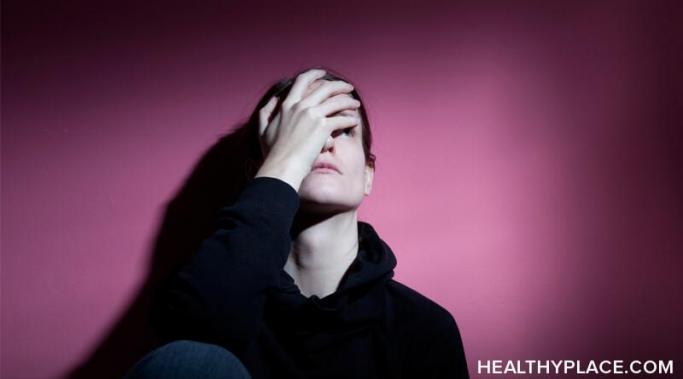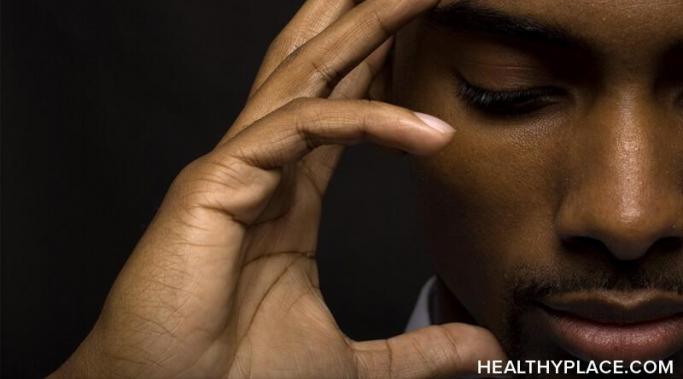Which is worse, having really bad arthritis in my knees or hearing voices? I don’t know. They both stink, and I’ve suffered from both. Not that rank needs to be pulled, but maybe I’ll figure out which one is worse--or which one I can cope with better--by writing about hearing voices versus arthritis.
Schizophrenia Symptoms
For me, psychosis involves auditory hallucinations (hearing voices and sounds) and is the most dangerous part of my illness. The last time I went to the emergency room for symptoms of psychosis, the doctor asked me if I heard voices, and when I answered that I was, he asked an important question, "Do you do what the voices tell you to do?" And unfortunately, my answer was yes. If you can't immediately see the danger in this scenario, try to think of it this way, imagine taking orders from something that is not real. It's alarming. Schizophrenia, voices, combined with suicidal ideation, is even more alarming.
While doing a few mental health presentations recently, I was surprised that not everyone knew that hallucinations could originate from any of the five senses (taste, touch, sight, sound, smell). There are many different types of hallucinations. I have experienced hallucinations from every one of my senses except maybe taste (gustatory). My most common hallucinations are olfactory (smell). I frequently smell chemicals or something burning when there is no source for either one of those things.
My medications for schizoaffective disorder cause a lot of weight gain, as readers of this blog well know. So, when I developed osteoarthritis in my knees at age 42, I started going to a nutritionist. I wanted to lose weight to take pressure off my knees. After a while, my nutritionist put me on a popular medication to support weight loss. At first, it was working really well. But then terrible side effects set in, including unbearable nausea, so I had to stop taking it.
In my experience, the worst part of schizophrenia is having episodes of psychosis. Losing touch with reality can be terrifying. For me, psychosis always involves hearing voices, delusions, and paranoia. I usually stop eating, which most likely makes the symptoms more severe. Complicating my experience with psychosis is a symptom called anosognosia.
It helps to know the difference between paranoia and anxiety. If I am experiencing paranoia, it involves delusions like someone is out to get me (suspicion and distrust) or has betrayed me. I frequently battle the delusion that someone is poisoning my food. My paranoia can cause anxiety, but the two do not have to be present together. My anxiety attacks often have ties to worry (like health concerns, the health of a loved one, public speaking, etc.), but not always. I can have an anxiety attack where I can't identify a triggering cause.
I was diagnosed with schizoaffective disorder, bipolar type, in 2002 (after a diagnosis of schizophrenia in 1999). But the anxiety that so often accompanies bipolar disorder and schizoaffective disorder has been with me since early childhood.
Psychosis (the presence of hallucinations and/or delusions) and anxiety can be difficult to deal with in relationships. Many symptoms can be confusing, frustrating, and challenging to those looking from the outside. When I have had breaks from reality (psychotic episodes), I have always treated my family and my spouse with suspicion due to paranoia. The paranoia often causes me to think that I am in danger around those who are the most supportive of me.
I haven’t heard schizoaffective voices in over a year, but when I used to hear them, I encountered a lot of stigma and became reluctant to mention them. Much of it was self-stigma, in that I wouldn’t talk about them to the people around me unless they were people I trusted and who knew already that I heard voices. But, the thing is, I was correct in not revealing, say, at work when I heard voices, as there is both stigma and self-stigma involved.
It seems like I am always learning something new about schizophrenia and its symptoms. I learn from my relationships with people with the illness and from following social media accounts of people with schizophrenia or schizoaffective disorder. I also get new information from my doctor and other psychiatrists who write about schizophrenia symptoms and the latest treatments.









